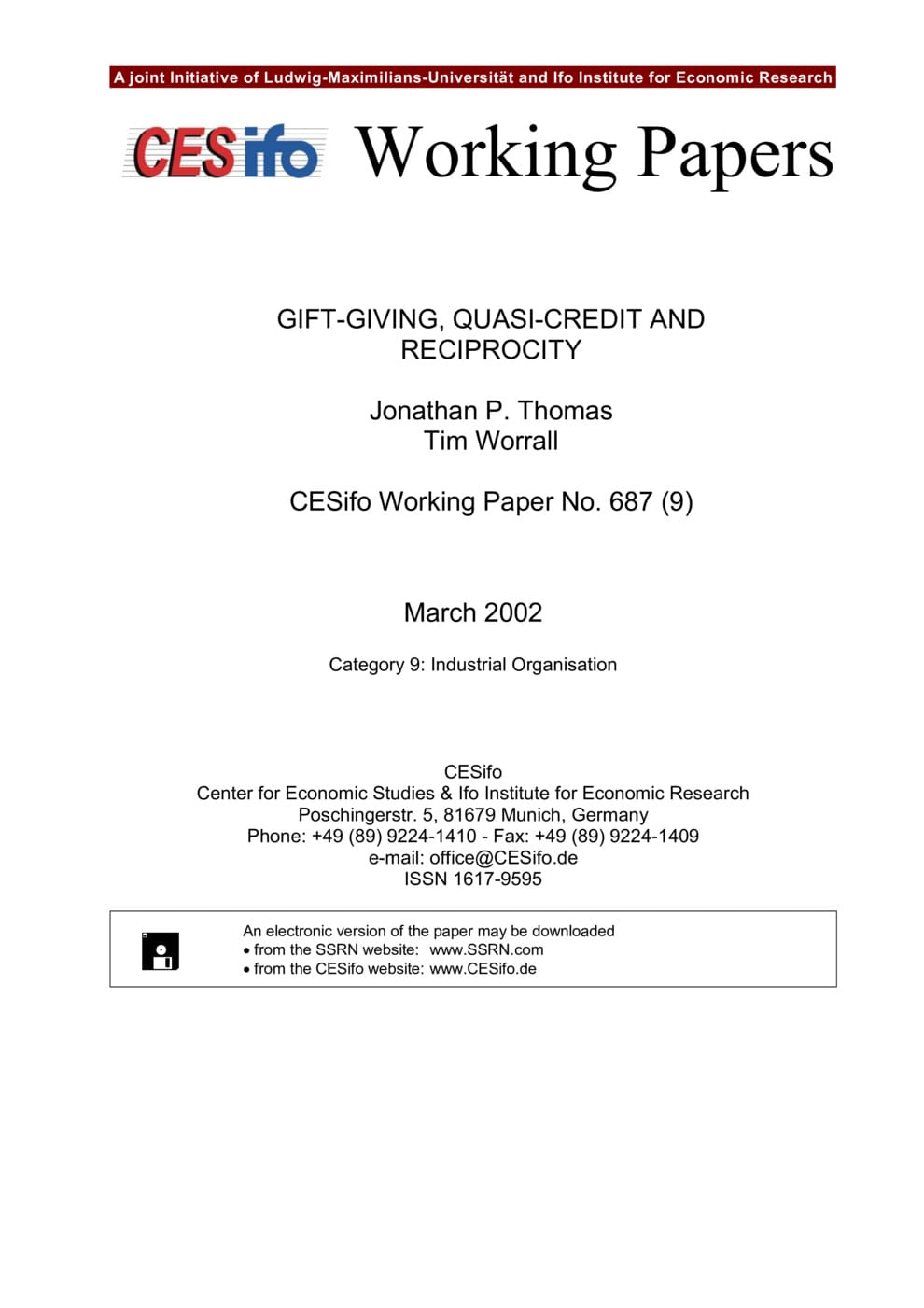Gift-Giving, Quasi-Credit and Reciprocity
CESifo, Munich, 2002
CESifo Working Paper No. 687

The fluctuations in incomes inherent in rural communities can be attenuated by reciprocal insurance. We develop a model of such insurance based on self-interested behaviour and voluntary participation. One individual assists another only if the costs of so doing are outweighed by the benefits from expected future reciprocation. A distinction is made between general reciprocity where the counter obligation is expected but not certain and balanced reciprocity where there is a firm counter obligation. This firm counter obligation is reflected by including a loan or quasi-credit element in any assistance. It is shown how this can increase the insurance provided and how it may explain the widespread use of quasi-credit in rural communities. Moreover it is shown that for a range of parameter values consistent with evidence from three villages in southern India, a simple scheme of gift-giving and quasi-credit can do almost as well as theoretically better but more complicated schemes.